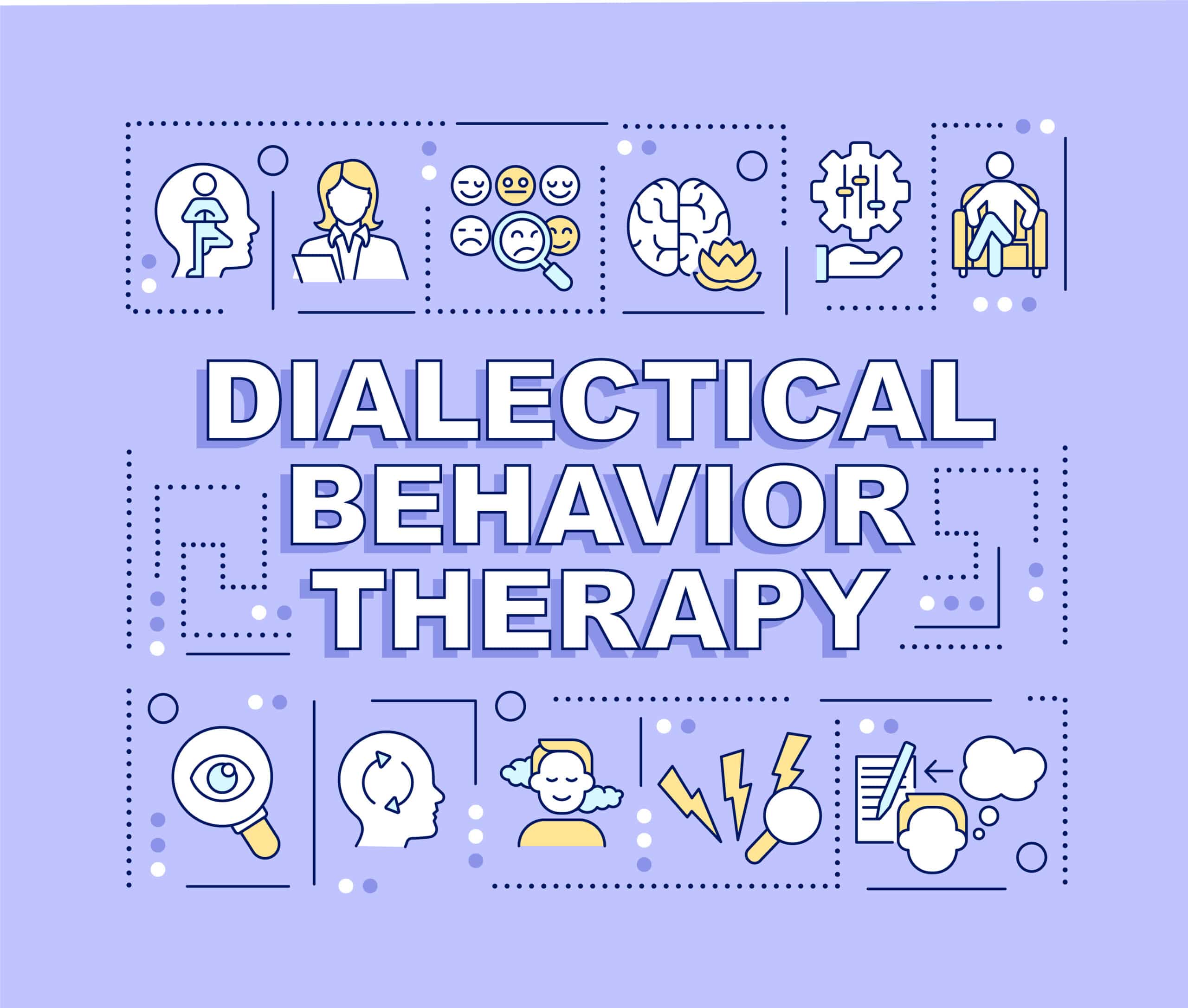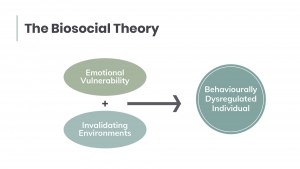Experience Growth and Revival with DBT London's Competence
Experience Growth and Revival with DBT London's Competence
Blog Article
Using the Power of Dialectical Practices Treatment (DBT) Providers for Lasting Emotional Balance and Improved Relationships
In a world where emotional wellness and keeping healthy and balanced relationships are vital parts of a fulfilling life, the usage of Dialectical Behavior Treatment (DBT) solutions has actually emerged as a beacon of hope for numerous individuals. The evidence-based and structured strategy of DBT uses a pathway in the direction of lasting emotional balance and enhanced interactions with others.

Recognizing the Core Concepts of DBT
Dialectical Habits Treatment (DBT) is founded upon a collection of core principles that underpin its restorative strategy to promoting emotional balance and emotional well-being. Among the fundamental principles of DBT is dialectics, which highlights the synthesis of apparently contrary ideas to come to a more balanced point of view. This includes recognizing and approving the contradictions and stress within oneself, causing a higher sense of consistency and understanding. Mindfulness is another core concept of DBT, concentrating on being completely present in the minute without judgment. By cultivating mindfulness, individuals can establish an increased understanding of their habits, ideas, and feelings, permitting better self-regulation and emotional control.

Recognition is also important to DBT, stressing the importance of recognizing and accepting one's experiences and emotions as valid. By integrating these core principles into therapy, DBT supplies a effective and thorough method to promoting emotional well-being and psychological resilience.
Creating Emotional Law Skills
Psychological law skills are important components of Dialectical Behavior modification (DBT) that make it possible for people to properly manage their emotions and navigate tough situations with strength. These abilities include the ability to determine and understand one's emotions, tolerate distress, control intense feelings, and act based on individual values even in the face of psychological turmoil. Creating emotional law skills entails discovering mindfulness strategies to stay present in the moment, comprehending the triggers that lead to psychological dysregulation, and applying coping techniques to modulate emotional responses.

Enhancing Interpersonal Efficiency
Improving interaction skills and cultivating significant links with others are important facets of developing interpersonal performance within the framework of Dialectical Habits Treatment (DBT) In DBT, improving interpersonal effectiveness involves discovering how to assertively share one's requirements and boundaries while additionally thinking about the requirements and boundaries of others. This ability is important for building healthy and balanced connections and reducing conflict. DBT teaches people exactly how to connect effectively, navigate social difficulties, and develop approaches for settling disputes in a constructive manner.
One secret part of boosting interpersonal performance in DBT is discovering to recognize and handle emotions in social communications. DBT London. By raising emotional recognition, people can react to others in a more compassionate and understanding means. Additionally, DBT stresses the relevance of practicing mindfulness in interpersonal partnerships, encouraging people to be present in their communications and totally engage with others
Exercising Mindfulness Techniques
Developing a regular mindfulness technique is vital for people going through Dialectical Behavior modification (DBT) to cultivate emotional law and boost their social performance. Mindfulness techniques, a core Recommended Site part of DBT, include focusing on the present minute without judgment. Through mindfulness, people can come to be much more knowledgeable about their thoughts, feelings, and bodily sensations, allowing them to react to circumstances with greater clearness and control.
One key mindfulness method utilized in DBT is mindfulness reflection. This technique includes concentrating on the breath or a specific things while allowing and acknowledging go of any distracting thoughts. By incorporating mindfulness meditation right into their day-to-day routine, people can train their minds to stay present and lower sensitivity to stressors.
Another important aspect of practicing mindfulness in DBT is the concept of extreme acceptance. Radical acceptance entails fully embracing reality as it is, also when it is hard or excruciating. By approving the here and now minute without judgment, individuals can lower their suffering and make area for favorable adjustment.
Using DBT Approaches in Every Day Life
Building upon the structure of mindfulness techniques such as meditation and extreme acceptance, individuals can integrate DBT techniques into their every day lives to cultivate emotional equilibrium and boost their social skills. One reliable DBT method is the use of dialectics, which urges people to find the happy medium in between 2 opposing thoughts or emotions. By practicing dialectics in everyday interactions, individuals can discover to verify their very own feelings while also thinking about the perspectives of others. Another vital DBT skill for every day life is distress tolerance, which involves learning exactly how to cope with intense emotions without considering harmful behaviors. This can be achieved with techniques such as self-soothing tasks, disturbance methods, or boosting the minute. Furthermore, interpersonal efficiency abilities educated in DBT can aid individuals connect their needs assertively, established limits, and maintain healthy and balanced connections. By constantly applying these DBT methods in every day life, individuals can experience sustainable emotional equilibrium and improve their overall health.
Verdict

Emotional policy skills are vital elements of Dialectical Behavior Treatment (DBT) that enable people to efficiently manage their emotions and more browse challenging circumstances with durability.With DBT services, individuals can grow a deeper recognition of their feelings, acknowledge patterns of behavior that add to psychological distress, and get useful devices to regulate their sensations constructively.Establishing a constant mindfulness method is necessary for people going through Dialectical Actions Therapy (DBT) to grow psychological regulation and boost their social efficiency.Structure upon the structure of mindfulness methods such as reflection and extreme approval, people can incorporate DBT strategies into their everyday lives to foster psychological balance and boost their interpersonal skills. By comprehending the core principles of DBT, developing psychological policy abilities, enhancing social effectiveness, practicing mindfulness methods, and applying DBT strategies in everyday life, people can experience substantial enhancements in their general health and partnerships.
Report this page